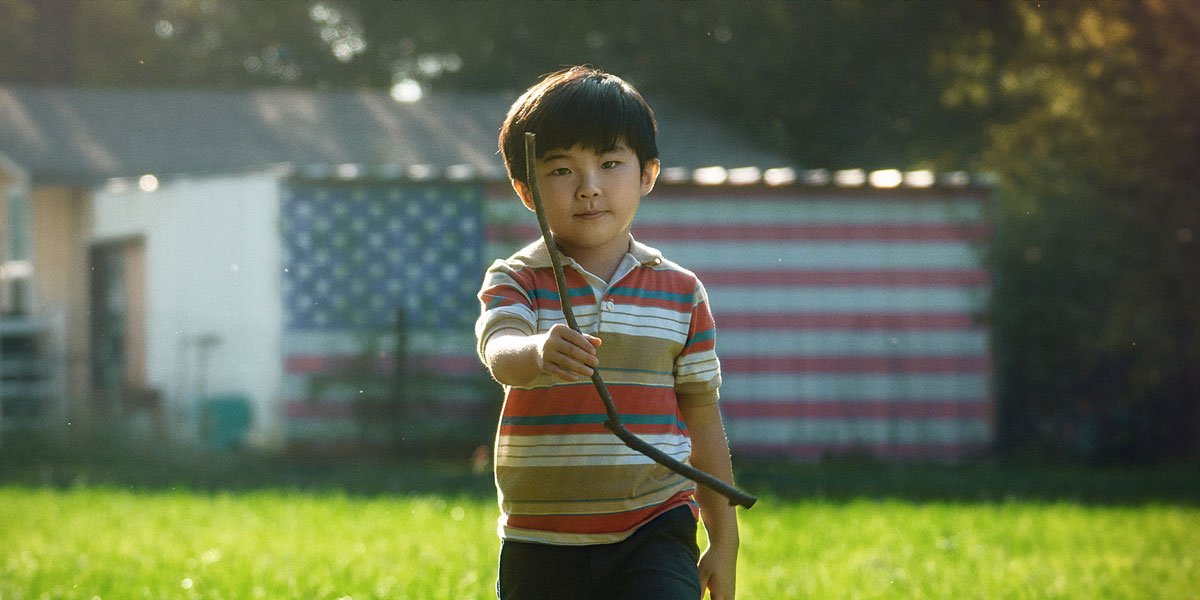
Immigrants and their stories and role within American society have been hot topics over the past four-plus years. Are they taking jobs away from Americans in need? Are they a misunderstood and neglected key demographic for the future of the country? Much of the conversation surrounding those have come here in search of a better life treats them more as an abstract concept than a group of human beings simply trying to live life as best they can. The latest buzzy film from indie darling distributor A24 seeks to rectify this issue.
Minari is a semiautobiographical film from writer/director Lee Issac Chung following the Korean-American Yi family, father Jacob (Steven Yeun), mother Monica (Han Ye-ri), their daughter Anne (Noel Kate Cho), and son David (Alan Kim) as they embark upon a move to a tiny Arkansas farm in search of their own American Dream. Soon after, Jacob and Monica decide to move Monica’s mother Soon-ja (Youn Yuh-jung) to America to live with them in her old age. Soon, her sly, foul-mouthed, but incredibly loving presence changes their home as the Yis try to manage their new surroundings.
At its core, this film is a quintessential immigrants’ story. A young family in an unfamiliar land, trying to build a life while chasing their version of the American dream. Jacob’s dream is a constant source of strife between he and Monica, hovering above the couple like the Sword of Damocles threatening to sever their union at a moment’s notice. What the Yi family and its struggles remind us of is that we most often focus on the external challenges faced by immigrants, xenophobia, lack of substantial job opportunities, etc., and lose sight of just how hard the actual act of immigrating is in and of itself. The issue of struggling to support your family as best you can in the way you feel is the most advantageous and the effect it has on your loved ones as they wait for your efforts to bear fruit. It is a universal problem that most people will face separate and apart from the compounding issue of trying to do so in an unfamiliar world you are not native to. One of the film’s final moments taken on the floor of the Yi home drives home the ultimate lesson that Minari has to offer: Despite whatever obstacles they encounter, being in this new place with the support of family is what will ultimately determine the success of an immigrant story.
The component of Minari that connects the most is its moving depiction of the special bond that can exist between a person and their grandparents. In the case of the Yi children, David specifically, we are shown how close relationships to our elders can help to connect us with our cultural heritage and ancestral past; a gift that only appreciates in value as we grow older. Minari, the herb that Soon-ja plants by the creek and what bonds her and David, serves as a symbol for the bond between the two and David’s connection to Korea. As the plant grows, so do both of David’s connections, to his grandma and his ancestral homeland. The important role that grandparents play for developing families has been researched and documented extensively, with all of the benefits depicted wonderfully by Chung in his director’s chair. From the cultural ties to the childcare offered by Soon-ja, we are able to see why our seniors are such an underappreciated aspect of families in western culture and why our time with them should be more cherished than it is.
Steven Yeun was naturally the most popular name from Minari’s ensemble cast as a potential contender for recognition for his performance due to his resume and ever developing notoriety as an actor on the rise. Coming out of the film however, Youn Yuh-jung who plays the grandmother Soon-ja was the clear scene stealer and fantastic in her role as the family’s eccentric matriarch. Simultaneously sweet and funny, Youn brings the levity that balances out the film and displays a charm that makes it impossible to take your eyes off of her when she appears onscreen and what you remember most about the film once it ends. Yeun is easy to root for as Jacob, a dad with a dream who’s determination to make something unique and sustainable for his young family embodies the immigrant’s spirit that America loves to hang its hat on as its cultural legacy. His chemistry with Han Ye-ri as a young couple hanging on by a thread as he tries to provide is heartbreakingly realistic and convincing as you want things to work out for them and hope they can weather the storm.
Minari is a slow burn, slice of life that serves more as a portrait into an American family and their story rather than a twisting, high octane, big screen experience. The issues and questions it asks you to contemplate are interesting enough, but may be a bit slow for some. Luckily, Youn Yuh-jung appears enough to bring real joy to the screen and add some much needed oomph to prevent the pace from feeling too glacial. Lee Issac Chung has brought the experiences that are often left untold to the forefront for all to enjoy and learn from.
Image: A24

